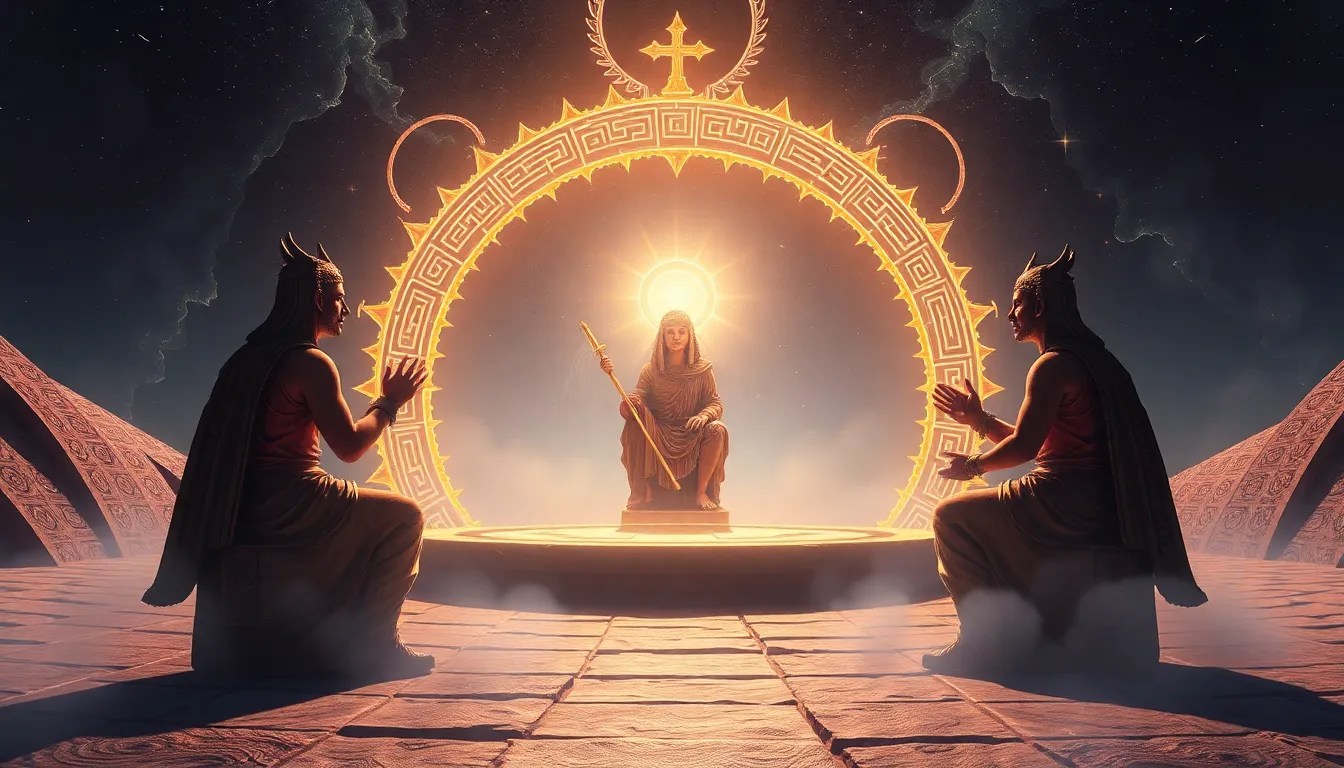The Influence of Babylonian Oracles on Religious Doctrine
I. Introduction
Babylonian oracles were a crucial element of Mesopotamian spirituality, serving as intermediaries between the divine and the mortal. These prophetic messages, delivered through various methods, were believed to provide insight and guidance in both personal and political matters.
In ancient Mesopotamian society, oracles played a significant role, shaping not only individual lives but also the broader cultural and religious landscape. This article will explore the historical context, types, functions, and the profound influence of oracles on Babylonian religious doctrine.
II. Historical Context of Babylonian Oracles
The practice of oracular divination in Babylon can be traced back to the early dynastic periods, with its roots deeply embedded in the religious and political fabric of Mesopotamian civilization. Key aspects include:
- Origins and Development: Oracular practices evolved alongside the growth of city-states, with temples serving as centers for divination.
- Key Historical Figures: Prominent priests and rulers, such as the high priest of Marduk, played essential roles in interpreting oracles.
- Political Influence: Oracles were often consulted during times of crisis, influencing decisions on wars, alliances, and laws.
III. Types of Oracles and Their Functions
Babylonian priests employed various methods of divination to communicate with the divine:
- Divination Methods: Techniques included liver examination, astrology, and bibliomancy, where texts were consulted for divine messages.
- Types of Oracles:
- Textual: Interpretation of sacred texts and inscriptions.
- Dream Interpretation: Dreams were seen as messages from gods, requiring skilled interpreters.
- Ritualistic: Specific rituals performed to invite divine communication.
- Decision-Making: Oracles provided a framework for making critical decisions in governance, warfare, and personal matters.
IV. The Relationship Between Oracles and Deities
In Babylonian belief, the gods played an essential role in not only delivering oracles but also in their interpretation:
- Role of Gods: Deities were believed to directly communicate their will through oracles, guiding the actions of the living.
- Key Deities: Gods such as Marduk, the chief deity of Babylon, and Ishtar, the goddess of love and war, were particularly associated with oracular practices.
- Divine Authority: The perceived authority of the gods in oracular messages reinforced the religious beliefs and practices of the Babylonians.
V. The Impact of Oracles on Religious Doctrine
Oracles significantly influenced the development of Babylonian theology and religious narratives:
- Shaping Theology: The messages received from oracles often led to the formulation of religious doctrines and beliefs.
- Integration into Sacred Texts: Many teachings from oracles were incorporated into later religious texts, preserving their significance.
- Influence on Rituals: The practices and rituals of worship were often shaped by the guidance provided by oracular messages.
VI. Case Studies of Notable Oracles
Several notable oracles have left a lasting legacy in Babylonian religious tradition:
- The Oracle of Marduk: This oracle was highly regarded, and its prophecies were seen as crucial for the city’s welfare.
- Specific Prophecies: Many oracles contained prophecies that foretold significant events, such as the rise and fall of kings or the outcomes of battles.
- Lasting Impact: The influence of these oracles extended beyond Babylon, affecting neighboring cultures and later religious traditions.
VII. The Decline of Oracular Influence
Over time, the reliance on oracles diminished due to various historical factors:
- Historical Factors: The rise of centralized power and the influence of new religious movements led to a decline in oracular practices.
- Transition to Other Authorities: As kings and priests consolidated power, the need for oracular guidance lessened.
- Legacy: Despite their decline, the practices and beliefs surrounding Babylonian oracles influenced later religious traditions, including Judaism and early Christianity.
VIII. Conclusion
In summary, Babylonian oracles played a vital role in shaping the religious doctrine of ancient Mesopotamia. Their influence permeated theology, rituals, and societal decisions, leaving an indelible mark on the spiritual landscape of the region.
The legacy of Babylonian spirituality continues to resonate, reminding us of the profound connections between the divine and human experience. For those interested in delving deeper into Mesopotamian mythology, further reading and exploration can unveil the rich tapestry of beliefs and practices that defined this ancient civilization.



